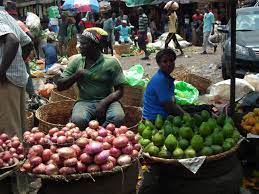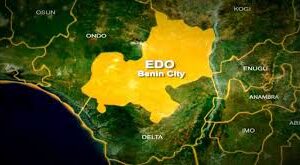About two weeks ago, the federal government took a bold step towards ensuring that hunger does not become the lots of citizens, anytime soon. In that regard, government declared a state of emergency on food security. The move was to check looming food shortage, occasioned by low agricultural production, and majorly fueled by violent insecurity, in the land.
Mr. Dele Alake, the Special Adviser to President Ahmed Bola Tinubu on Special Duties, Communication and Strategy, dropped the ‘bombshell’ of the national emergency on food security. The presidential aide, who is now a ministerial nominee, at a news conference said the decision came in response to inflation and the inability of citizens to afford basic food items.
President Tinubu, according to Mr. Alake, had already ordered that all matters pertaining to food and water availability and affordability be included within the scope of the National Security Council. He equally ordered the immediate release of fertilizers and grains to farmers and households to mitigate the effects of the subsidy removal.
Alake said the Tinubu government would deploy savings from the subsidy phase-out to revamp the agricultural sector in coming weeks. “We shall create and support a national commodity exchange board that will review and continuously assess food prices as well as maintain [the] strategic food reserve that will be used as [a] price stabilization mechanism for critical grains and other food items,” he said.
The president’s spokesperson also said authorities would boost the security architecture to protect farmers. He said the Ministries of Agriculture and Water Resources would work together to guarantee irrigation for farmers, to produce food all-year round. Without mincing words, the state of emergency on Nigeria’s food security is the best thing that can happen to our country now.
President Tinubu has taken a step in the right direction. He truly got it right, as far as taking a courageous step towards restoring the glory of the country’s agricultural sector, is concerned. It is regrettable that a sector that was once the mainstay of Africa’s largest economy some few decades ago, is now gasping for breath.
From 1960 to 1969, Nigeria’s agro sector was in a league of its own. As a lucrative sector, it accounted for an average of 57 percent of the nation’s Gross Domestic Product (GDP) and generated 64.5 per cent of export earnings, within the decade Nigerian gained her independence. Then, things began to fall apart. The sector’s contribution to the GDP and export earnings steadily declined as from 1970. And this was because Nigeria’s focus shifted to petroleum exploration.
One thing I am certain about is that President Tinubu has the capacity to provide a therapy for our fragile economy. But as a journalist committed to advocating for a robust agricultural sector in Nigeria, I have something to tell Mr. President. He should go beyond declaring only a national emergency on the country’s food security.
He should accord priority attention to maximizing Nigeria’s rice production capacity, among West African, if not entirely other world nations. President Tinubu, Nigeria, the nation you are leading, is the largest producer of rice (paddy) in Africa, with an average production volume of 8 million metric tonnes. As of 2019, Nigeria ranked as the 14th largest producer of rice in the world. Again, as of 2019, Africa had a total production volume of 14.6 million metric tonnes. But it was Nigeria and Egypt that produced about 55% and 30% of the 14.6 million tonnes.
Ravaging insecurity, climate change, farmers’ low capital, and flood havoc, among others, Mr. President, are however threatening rice production in our dear country. But they cannot compete with the reckless activities of rice smugglers. The Rice Processors Association of Nigeria, RIPAN, in April this year, raised the alarm that illegal importation of rice into the country had persisted, despite federal government’s interventions.
At a press conference then, Andy Ekwelem, Director General of RIPAN, noted that due to the fact that rice is a staple food for Nigerians, and because smugglers take rice to be an A-rated trade item, they brazenly smuggle million tons of packaged rice from India, Thailand and other southeast Asian countries into Nigeria, from Benin Republic, Niger Republic and Cameroun.
If the lofty goals of Tinubu’s state of emergency declaration on food security must be achieved, the federal government must swiftly tackle rice smuggling, in particular. The immediate-past administration of former President Muhammadu Buhari formulated and implemented laudable policies to boost rice production in the country. The Tinubu administration should consolidate on that.
It should also design and launch, if necessary, novel and effective policies and actionable programmes that will further strengthen and sustain Nigeria’s rice industry. Equally germane is the need for the federal government to devise a new strategy of dealing with economic saboteurs – I mean the dubious government and law enforcement officials -:whose unpatriotic actions enhance the illegal importation of foreign rice, into the country.
Aside from the huge investments we anticipate President Tinubu to make in the rice subsector, FG should begin to worry about pervasive insecurity and how it has affected farming generally, in the country. The government should do all within its might to clip the wings of daredevil terrorists and bandits, who are frustrating millions of Nigerian farmers, especially those in the North. Our farmers must return to their abandoned farmlands, and no tax or levy should be paid to any scoundrel. All we need is well-motivated security agencies to do the job they are constitutionally saddled with – protect lives and property.
Another way the government can assist and support Nigerian rice farmers in particular, is by making small-interest loans accessible to them. They need more capital to quit subsistence rice farming for massive cultivation – that will be enough for feeding teeming citizens and export. The inherent challenges of the Anchor Borrowers and other existing agro-loan Schemes should be addressed, so that they can better serve their intended purposes.
Let me once again commend Mr. President for ordering the disbursement of fertilizers and grains to farmers and households, to mitigate the effects of the subsidy reversal policy. But it should not just stop there. Our rice farmers, which this article has all along been empathizing with, need rice seeds resistant to flooding and other harsh weather conditions. There will be a need for FG to also encourage more and better research in Foundation Seeds Production.
I wish to also plead with President Tinubu to encourage state governments to ease bottlenecks in the processes of acquiring land for large-scale farming of paddy rice. Meanwhile, the Federal Ministry of Agriculture should develop a viable mechanized service programme for the provision of tractors and planters, threshers and dryers and strategic farm-silo/warehouses (to curb post-harvest losses), to small-holder rural farmers, who form the bulk of rice producers in the country.
Nigerians and indeed stakeholders in the country’s rice industry will be pleased if every other necessary steps are taken by the government to enhance the aggressive production of rice, locally. Citizens consuming foreign rice brands that are harmful to their wellbeing and health must be stopped. President Tinubu’s state of emergency to tackle Nigeria’s food crisis is not the end point. But the means to an end, which is attaining prosperity for Nigeria’s agricultural sector, in the long run.
Safina Abbati and Karima Kabir Garba are 300-Level Mass Communication students of Nile University, and can be reached via: [email protected] [email protected]




